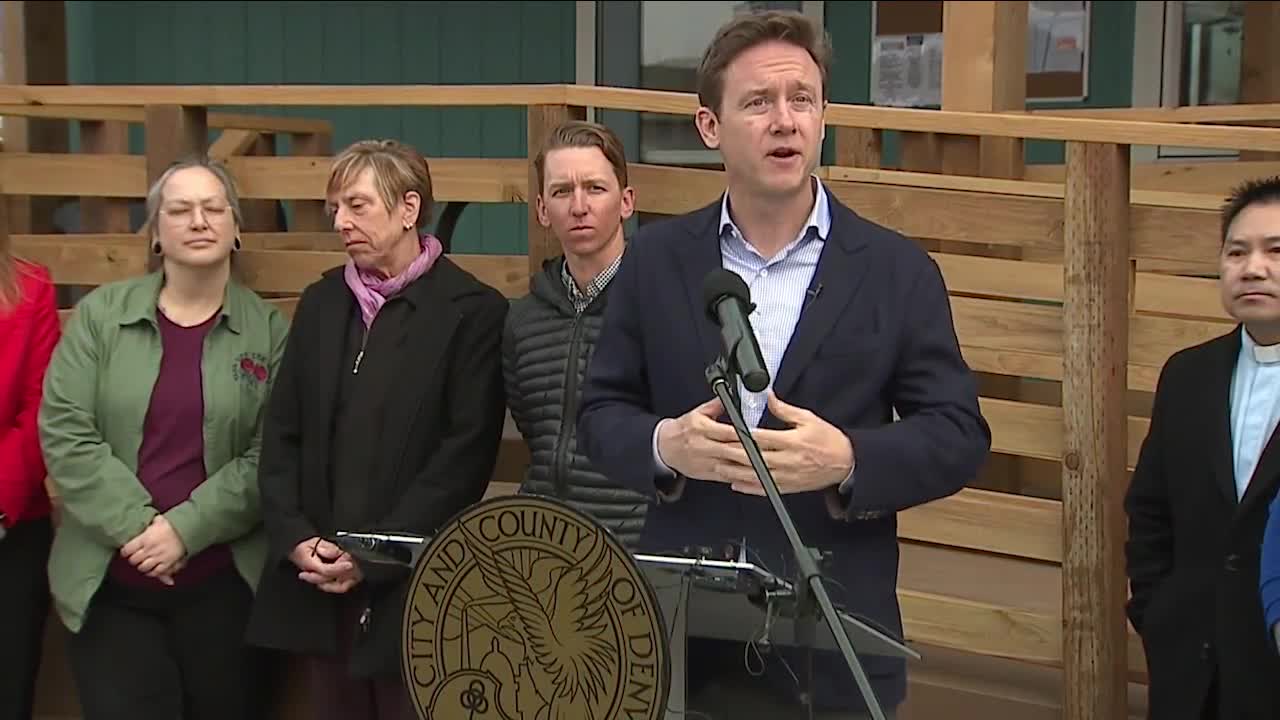DENVER — Ever since Mayor Mike Johnston announced his homelessness initiative, many have wondered how much the city would have to spend on it.
On Tuesday, city officials began providing some answers, but there’s still a lot of uncertainty about how the city will pay for the program in the future.
This week, the U.S. Interagency Council on Homelessness praised Johnston’s efforts to address the city’s homelessness crisis.
“While we have a long way to go to end and prevent homelessness, Denver is showing the nation that homelessness is solvable—especially when we treat people experiencing it with the respect and dignity that they deserve,” said Jeff Olivet, the executive director of the U.S. Interagency Council on Homelessness.
The mayor’s office shared Olivet’s comments in a press release on Monday.
But not everyone is singing the mayor’s praises.
“Our All In Mile High sites have a 73% failure rate for the people who are leaving the program and what I wish is that the mayor's office had slowed down and done this right in the first place,” said Denver City Councilwoman Amanda Sawyer.
Sawyer’s comments came Monday night as the city council considered, and later approved, a $5 million contract for a pilot program that will bring 250 people off the streets and into leased housing.

For months, Sawyer and her colleague, Denver City Councilmember Stacie Gilmore have accused the mayor’s office of keeping the council and the public in the dark about spending for the All In Mile High initiative.
“We haven't been transparent to the public through presenting to them and our constituents what the All in Mile High budget is,” said Gilmore.
On Tuesday, the mayor’s team tried to put those concerns to rest.
They said the city spent $13.1 million last year, which was much lower than the $48 million they anticipated spending.
They said many of the expenses weren’t finalized until this year, including the purchase of the former Best Western Hotel and manufactured sleeping units for micro-communities.
“We anticipated they would hit in 2023, but they're actually hitting in 2024, which is a large part of our budget in 2024,” said Dr. Jamie Rife, the executive director of the Denver Department of Housing Stability (HOST).
Some of the money the city spent are one-time costs, which pay for things like hotel acquisitions and micro-community site preparation. This money is largely from federal funding the city received.
Rife said any money not spent last year has been added to this year’s budget.
Moving forward, Rife said they project the city will need to spend $57.5 million a year to support 2,000 people, about $28,000 per person.
“And this includes services, the temporary housing, the wraparound support,” Rife said.
Yet they’re not sure where exactly all of this money will come from, with pandemic funding quickly drying up.
“We have to stop approving millions and millions and millions of dollars that are not sustainable,” Sawyer said before voting against the new pilot program Monday night. “There's no sustainable funding source.”

When asked Tuesday by Denver City Councilman Paul Kashmann where funding for the $57.5 million projected annual costs would come from, Stephanie Karayannis Adams, Denver’s deputy chief financial officer, said they don’t know yet.
“This is probably not a very satisfactory answer to you, but that is something we will have to work through as part of the overall 2025 budget process,” said Adams.
Sawyer said while identifying funding sources is important to city officials and council members, most members of the public just want to know how their tax money is being spent.
“Our residents don't care what the funding sources [are],” said Sawyer. “They know that we have two huge programs that we are spending hundreds of millions of dollars in 18 months, and they aren't getting their street paved or they aren't getting their trash service picked up on time or whatever else.”
The city is also asking the council to provide an additional $17 million this year to pay for unexpected needs.
"These include some additional security needs, both operating support and video surveillance cameras, as well as some repairs and maintenance at the hotels that exceeded what we had initially anticipated when planning for 2024," Rife said.
The city began upgrading security at hotel shelter sites following a deadly double shooting at one of the hotels in March.




